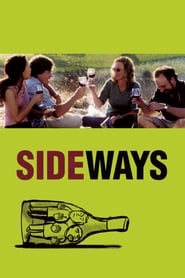God, I'd have hated to have been working for tips doing anything related to wine after this came out. I'd have managed to soldier through only two or three people lecturing me about "too much oak and secondary malolactic fermentation" in Californian chardonnay before doing something life-threatening and potentially illegal with a corkscrew. In the years since Sideways, there have been many films and TV shows that have got the culture 'into' something: Queen's Gambit got everyone into chess; Lord of the Rings made everyone holiday in New Zealand; and I'm told Stranger Things had everyone buying Eggo Waffles for some reason. Apart from the obvious opportunities for product placement, there's something about the general concept that feels a bit too, I dunno, constructed for my liking.
Indeed, there's a definite 'TV' feel to Sideways, yet its non-trivial budget suggests that this was perhaps a deliberate stylisation to make it appear more like an independent production. Office Space (1999) might be a good comparison in terms of how locations are established, shot, lit and its overall tone. Sideways certainly got all the classic indy-friendly signifiers down as well: a specific locale; its based around a particular activity; that particular kind of drama-comedy sensibility, etc. I'm not saying the film isn't effective, but perhaps its 'surprise' success was less unforeseen than everyone should think. (Also likely underrated in getting your movie seen by a lot of people: give the critics and columnists to show off their esoteric knowledge and/or punning abilities.)
Anyway, Paso is wonderful and everyone should go.
The term “the Sideways Effect” is still tossed around in regard to the intense proliferation of Pinot Noir… and the fall of Merlot, a varietal author Rex Pickett reportedly chose to make his protagonist’s bete noir because…it was what his ex liked. Merlot growers saw tanking prices; some pulled their vines out entirely.
— Amy Glynn (Paste Magazine)
Giamatti is an acerbic loser hero who’s eventually given a ray of hope, like the Woody Allen hero of 20 or 30 years ago but without the wisecracks. So is regressing to that moviemaking model the proudest achievement of world cinema in 2004? Did the critics find something comforting, even affirmative, about its provincialism?
— Jonathan Rosenbaum (Chicago Reader)

